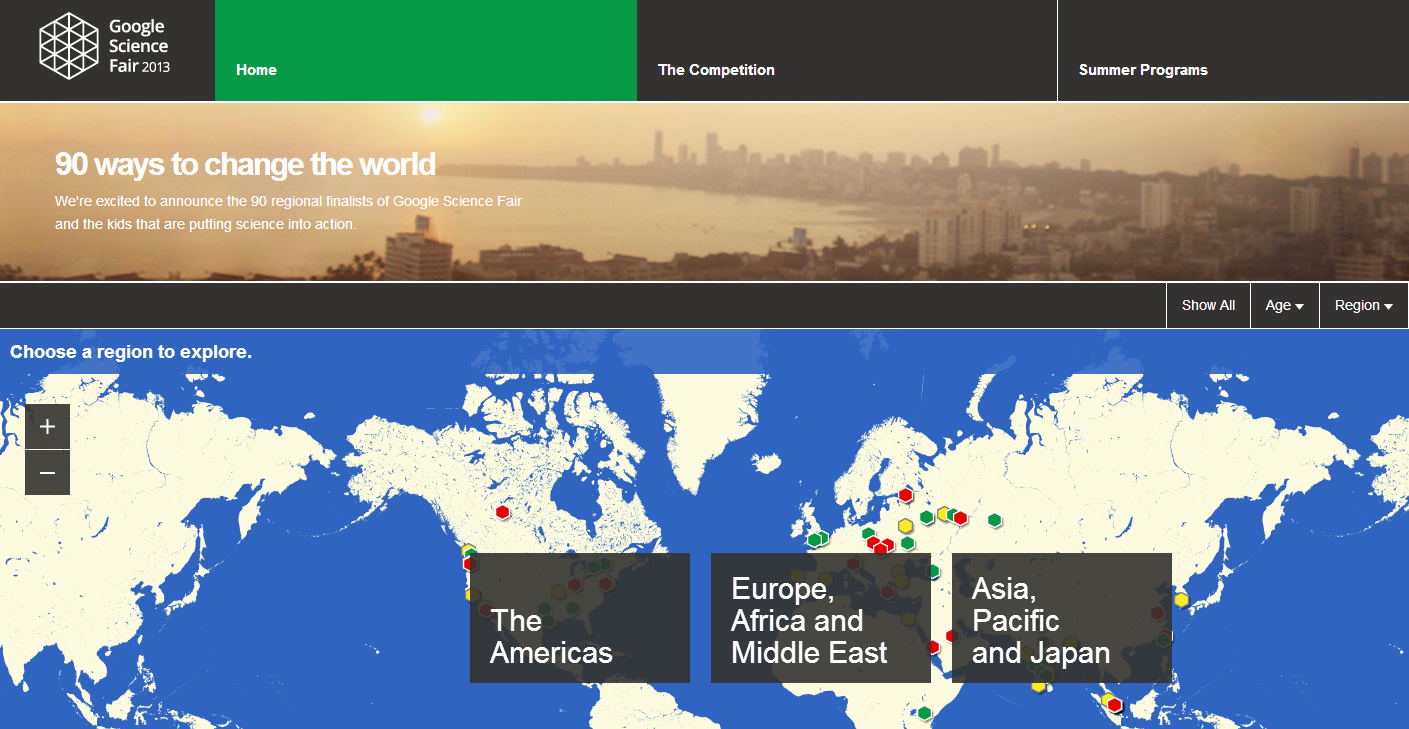Many great scientists happened to develop their curiosity for science and the unknown at an early age. So earlier this year, Google asked some of the brightest young minds from around the world to present innovative ideas that could one day change the world for the better. The 2013 Google Science Fair has attracted many exciting entries from thousands of submissions representing more than 120 countries. And after a busy few months judging the submissions, Google has revealed the 90 regional finalits for the fair, with projects ranging from using banana peels to produce bioplastics to research into a green treatment for contaminated water
Notable 2013 Google Science Fair Projects
- Going Bananas! Using Banana Peels in the Production of Bio-Plastic As A Replacement of the Traditional Petroleum Based Plastic
- The Green Technique for the Degradation of Detergents – Solar Light Assisted nanoZnO Photo Catalytic Mineralization
- Entomophagy and “molecular gastronomy” an approach that could change the future of humanity
- Biomarker for the Detection of Hepatocellular Carcinoma – Aberrant Methylation of the RASSF1A Gene
- Electricity From Traffic – convert the force exerted by the moving automobiles on the road surface into useable electrical energy
- Wireless Transmission of Electricity – determine whether this technology would be practical for consumer use without causing any major interferences
2013 Google Science Fair Prizes & Awards
The current 90 regional finalists are in line for a LEGO ‘goodie bag’ and some decent reading material with one year of digital access to Scientific American for his or her school. Of the finalists, one Grand Prize winner (along with a parent or guardian) will be treated to a 10-day Darwin-like adventure through the Galapagos Islands with National Geographic Expeditions, where they’ll get to go kayaking in secluded coves and skim the water in a nimble Zodiac to spot the mola mola fish: a once-in-a-lifetime trip for any aspiring scientist and nature lover! The Winner will also receive $50,000 in scholarship funding as well as a $10,000 grant for his/her school, to invest however the Winner desires. Additionally, Google will recognize the Scientific American Science in Action Award. This $50,000 award honors one outstanding project that “makes a practical difference by addressing an environmental, health, or resources challenge.”
Last year’s winner, Brittany Wenger, created a global neural network cloud service for detecting breast cancer which was also featured in one of our five coolest technologies invented by high schoolers!
Do you have an idea to submit next year that could potentially change the world?





fine Ideas to Change the World